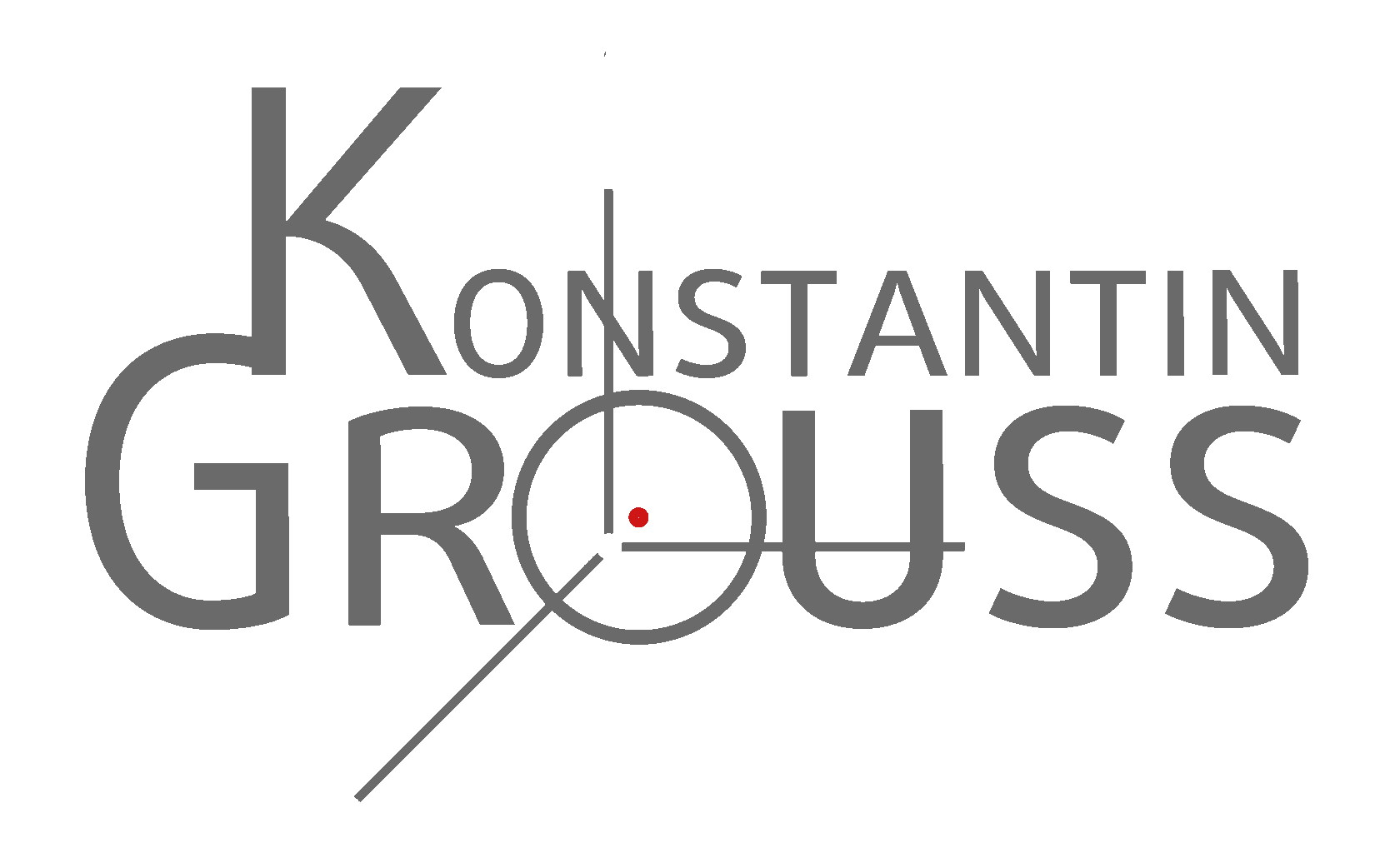Inappropriate texts
The performance is inspired by Marina Tsvetaeva's poem "New Year's", written on the death of Rainer Maria Rilke, and is dedicated to the possible meeting of two poets.
Josef Brodskiy about Marina Tsvetaeva ...▷
"... And I do not feel anything beyond absolute astonishment before her poetic power"
Inappropriate texts
Multimedia performance
Comtemporary dance, poetry, video
Marina Tsvetaeva museum
30 min.
2015
Comtemporary dance, poetry, video
Marina Tsvetaeva museum
30 min.
2015
The performance is a dedication not only to the Marina Tsvetaeva, but also to my teacher, Gennady Mikhailovich Abramov, who was fancier and connoisseur of poetry of the 20th century.
Idea, director
Konstantin Grouss
Dance
Alexandra Konnikova
Albert Alberts
Konstantin Grouss
Soprano
Ekaterina Kichigina
Voice
Nata Longwin
Sound composition for dance
Richardas Norvila
Piano
Natalya Cherkasova
Poetry
Marina Tsvetaeva
Rainer Maria Rilke (translation by T. Silman),
Music
Dmitry Shostakovich (fragment from the 14th symphony)
Filming coordinator
Maria Alina
Video engineer
Daler Arabov
Technical coordinator
Sergey Korneev
Camera
Elizaveta Donskikh, Andrey Fenochka, Timofey Shpak
Producer
Tatyana Novoselova
With the support of V. Potanin Charity Fund
The performance is presented in the framework of the project "Housewarming, or Marina Efron's House Diary"
"Who am I?" - An important issue that Tsvetaeva settled for herself. "Not a woman, but a soul!" There is no romance in this. There is dance and there is music. There is a dialogue between the Poet and the Poet. Herself with herself. This dialogue Tsvetaeva led her whole life.
Inspiration for the work was the poem "New Year's" written by Tsvetaeva on the death of Rainer Maria Rilke in early 1927. And the key to understanding of it is the essay that Joseph Brodsky devoted to her poetic response to the death of the great poet.
The theme of death was inherent in Tsvetaeva's poetry from the moment of self-awareness as personality and poet. You can trace a reference to this topic from early youth to the very last days. It conveys a sense of temporary stay on Earth and a constant assessment, a test of life for its strength. First of all, her own life.
Many poems have been written on the death of the poet. An important topic allows by turning to another to express an attitude towards yourself. A conversation between a poet and a poet turns into a conversation with herself.
In such a conversation, when it is no longer about ordinary values, the poet, artist looks over the edge, stands a step away from it, gets the ability and the right to say about eternal things. For Tsvetaeva, this extreme was familiar and she walked along the edge as long as she could maintain balance.
Tsvetaeva was always overwhelmed with life and energy. Boredom was little familiar to her. The ability to work, discipline and talent got her high and made it possible to see the picture of our world as a whole. And not only with her own eyes, but also with the eyes of other poets. And above all, Rainer Maria Rilke, who was such a big all-seeing eye for her.
His early death took away from her this ability of a different vision, which she bitterly regrets, for this understanding eye was directed partly at her.
We can say that the dialogue between Tsvetaeva and Rilke is a way to find another eye. And as the vision is cleaner and clearer, the harder is to lose it.
In "Inappropriate Texts", dance is a dialogue between two poets at the soul level. Voice and music sound at the level of bodies. The texts of two poets - Tsvetaeva and Rilke - are pronounced in the rhythm of the heart. The performance took place on August 31, the day of the death of Marina Tsvetaeva. And on the day of her transition to a new dimension. The poet sees only the poet in front of him, realising that there is already nobody behind him but God. He is ат extreme line. And all that will be said will cease to be true. Therefore, the text itself, whatever it may be, is also inappropriate in this dialogue. And the house itself, formerly residential, is now a museum is an inappropriate space for a dance performance, and life, as Tsvetaeva herself defines it, is the most inappropriate space for a poet.
The work on this performance is in many ways a collaboration of several artists for whom I wrote a script, built a common line and selected material. What happened during the performance depended on us all. Albert Alberts and Alexandra Konnikova, who have their own unique dance technique, created that particular line of dialogue that goes beyond words, runs between letters, commas and periods. Richardas Norvilla created an original sound composition based on Rilke's text "Elegy. To Marina Tsvetaeva-Efron", captivating into the mesmerising depth of auditory sensations, rhythms and interpretation of lexical meanings.
Poetry of the first half of the 20th century served as an occasion and inspiration for Dmitry Shostakovich to write the 14th symphony. A fragment of the symphony on the verses of Rainer Maria Rilke performed by the magnificent Ekaterina Kichigina, who has been working with contemporary music for many years and has her own manner of singing. Natalia Cherkasova played a fragment of the score of the symphony on the piano.
The poetic dialogue of Tsvetaeva and Rilke itself, is built of several poems that take attention into the depths of the personality of these poets, who never once got in touch on the surface of this world, but there, at a depth, the meaning of what is said in the verses merges into a different picture. Their modern and very simple execution leaves a wide field for semantic interpretations, but remains very personal and very tangible physically. The combination of bodily, rhythmic and linguistic sensations creates the multitude that surrounds the world of Marina Tsvetaeva herself, the multitude into which it is possible to enter and see the world from a different point of view. Life and death, which poets talk so much about, acquire a semantic framework and become themselves merely frameworks that limit fragments of our existence. In such a company, it is pleasant and interesting to work on difficult topics, which we take the liberty of talking about, no longer cause stumbling and inspire to take the next step"
Konstantin Grouss, artist, choreographer, director
Idea, director
Konstantin Grouss
Dance
Alexandra Konnikova
Albert Alberts
Konstantin Grouss
Soprano
Ekaterina Kichigina
Voice
Nata Longwin
Sound composition for dance
Richardas Norvila
Piano
Natalya Cherkasova
Poetry
Marina Tsvetaeva
Rainer Maria Rilke (translation by T. Silman),
Music
Dmitry Shostakovich (fragment from the 14th symphony)
Filming coordinator
Maria Alina
Video engineer
Daler Arabov
Technical coordinator
Sergey Korneev
Camera
Elizaveta Donskikh, Andrey Fenochka, Timofey Shpak
Producer
Tatyana Novoselova
With the support of V. Potanin Charity Fund
The performance is presented in the framework of the project "Housewarming, or Marina Efron's House Diary"
"Who am I?" - An important issue that Tsvetaeva settled for herself. "Not a woman, but a soul!" There is no romance in this. There is dance and there is music. There is a dialogue between the Poet and the Poet. Herself with herself. This dialogue Tsvetaeva led her whole life.
Inspiration for the work was the poem "New Year's" written by Tsvetaeva on the death of Rainer Maria Rilke in early 1927. And the key to understanding of it is the essay that Joseph Brodsky devoted to her poetic response to the death of the great poet.
The theme of death was inherent in Tsvetaeva's poetry from the moment of self-awareness as personality and poet. You can trace a reference to this topic from early youth to the very last days. It conveys a sense of temporary stay on Earth and a constant assessment, a test of life for its strength. First of all, her own life.
Many poems have been written on the death of the poet. An important topic allows by turning to another to express an attitude towards yourself. A conversation between a poet and a poet turns into a conversation with herself.
In such a conversation, when it is no longer about ordinary values, the poet, artist looks over the edge, stands a step away from it, gets the ability and the right to say about eternal things. For Tsvetaeva, this extreme was familiar and she walked along the edge as long as she could maintain balance.
Tsvetaeva was always overwhelmed with life and energy. Boredom was little familiar to her. The ability to work, discipline and talent got her high and made it possible to see the picture of our world as a whole. And not only with her own eyes, but also with the eyes of other poets. And above all, Rainer Maria Rilke, who was such a big all-seeing eye for her.
His early death took away from her this ability of a different vision, which she bitterly regrets, for this understanding eye was directed partly at her.
We can say that the dialogue between Tsvetaeva and Rilke is a way to find another eye. And as the vision is cleaner and clearer, the harder is to lose it.
In "Inappropriate Texts", dance is a dialogue between two poets at the soul level. Voice and music sound at the level of bodies. The texts of two poets - Tsvetaeva and Rilke - are pronounced in the rhythm of the heart. The performance took place on August 31, the day of the death of Marina Tsvetaeva. And on the day of her transition to a new dimension. The poet sees only the poet in front of him, realising that there is already nobody behind him but God. He is ат extreme line. And all that will be said will cease to be true. Therefore, the text itself, whatever it may be, is also inappropriate in this dialogue. And the house itself, formerly residential, is now a museum is an inappropriate space for a dance performance, and life, as Tsvetaeva herself defines it, is the most inappropriate space for a poet.
The work on this performance is in many ways a collaboration of several artists for whom I wrote a script, built a common line and selected material. What happened during the performance depended on us all. Albert Alberts and Alexandra Konnikova, who have their own unique dance technique, created that particular line of dialogue that goes beyond words, runs between letters, commas and periods. Richardas Norvilla created an original sound composition based on Rilke's text "Elegy. To Marina Tsvetaeva-Efron", captivating into the mesmerising depth of auditory sensations, rhythms and interpretation of lexical meanings.
Poetry of the first half of the 20th century served as an occasion and inspiration for Dmitry Shostakovich to write the 14th symphony. A fragment of the symphony on the verses of Rainer Maria Rilke performed by the magnificent Ekaterina Kichigina, who has been working with contemporary music for many years and has her own manner of singing. Natalia Cherkasova played a fragment of the score of the symphony on the piano.
The poetic dialogue of Tsvetaeva and Rilke itself, is built of several poems that take attention into the depths of the personality of these poets, who never once got in touch on the surface of this world, but there, at a depth, the meaning of what is said in the verses merges into a different picture. Their modern and very simple execution leaves a wide field for semantic interpretations, but remains very personal and very tangible physically. The combination of bodily, rhythmic and linguistic sensations creates the multitude that surrounds the world of Marina Tsvetaeva herself, the multitude into which it is possible to enter and see the world from a different point of view. Life and death, which poets talk so much about, acquire a semantic framework and become themselves merely frameworks that limit fragments of our existence. In such a company, it is pleasant and interesting to work on difficult topics, which we take the liberty of talking about, no longer cause stumbling and inspire to take the next step"
Konstantin Grouss, artist, choreographer, director
Photo
Multimedia performance "Inappropriate texts"
Marina Tsvetaeva museum
Marina Tsvetaeva museum
Video
Full video / 30 min /
Additional materials

Joseph Brodsky - Solomon Volkov. Dialog
http://lslold.ksu.ru/virt_vyst/22/fr_zv_br.htm
New Year's poem
http://lib.ru/BRODSKIJ/tsvetaeva.txt
http://lslold.ksu.ru/virt_vyst/22/fr_zv_br.htm
New Year's poem
http://lib.ru/BRODSKIJ/tsvetaeva.txt

Диалог Райнер Мария Рильке - Марина Цветаева
Райнер Мария Рильке
Всевластна смерть.
Она на страже
и в счастья час.
В миг высшей жизни она в нас страждет, живет и жаждет –
и плачет в нас.
Марина Цветаева
А во лбу моем — знай! —
Звезды горят.
В правой рученьке — рай,
В левой рученьке — ад.
Есть и шелковый пояс —
От всех мытарств.
Головою покоюсь
На Книге Царств.
Много ль нас таких
На святой Руси —
У ветров спроси,
У волков спроси.
Так из края в край,
Так из града в град.
В правой рученьке — рай,
В левой рученьке — ад.
Рай и ад намешала тебе в питье,
День единый теперь — житие твое.
Проводи, жених,
До седьмой версты!
Много нас таких
На святой Руси.
Райнер Мария Рильке
Ночное небо тускло серебрится,
на всем его чрезмерности печать.
Мы — далеко, мы с ним не можем слиться, —
и слишком близко, чтоб о нем не знать.
Звезда упала!.. К ней спешил твой взгляд, —
загадывай, прося в мгновенья эти!..
Чему бывать, чему не быть на свете?
И кто виновен? Кто не виноват?..
Райнер Мария Рильке
Поэт
Миг, ты ранишь меня, улетая.
Этих крыльев пагубна тень.
И замкнулись уста. Я не знаю,
что мне ночь теперь, что мне день?
Что любовь, что дом, что уют?
Я один перед целым светом,
И себя я дарую предметам,
И они вновь меня раздают.
Марина Цветаева
Знаю, умру на заре! На которой из двух,
Вместе с которой из двух - не решить по заказу!
Ах, если б можно, чтоб дважды мой факел потух!
Чтоб на вечерней заре и на утренней сразу!
Пляшущим шагом прошла по земле!- Неба дочь!
С полным передником роз!- Ни ростка не наруша!
Знаю, умру на заре!- Ястребиную ночь
Бог не пошлет по мою лебединую душу!
Нежной рукой отведя нецелованный крест,
В щедрое небо рванусь за последним приветом.
Прорезь зари - и ответной улыбки прорез...
- Я и в предсмертной икоте останусь поэтом!
Райнер Мария Рильке
Смерть поэта
Сопрано - Екатерина Кичигина
Дмитрий Шостакович, Симфония 14 / Смерть поэта /
http://bideo1.com/track/36680700_81788116
Поэт был мёртв. Лицо его, храня
все ту же бледность, что-то отвергало,
оно когда-то всё о мире знало,
но это знанье угасало
и возвращалось в равнодушье дня.
Где им понять, как долог этот путь;
о, мир и он — все было так едино:
озёра и ущелья, и равнина
его лица и составляли суть.
Лицо его и было тем простором,
что тянется к нему и тщетно льнёт, —
а эта маска робкая умрёт,
открыто предоставленная взорам —
на тленье обречённый, нежный плод.
Марина Цветаева
После бессонной ночи слабеет тело,
Милым становится и не своим, — ничьим.
В медленных жилах еще занывают стрелы —
И улыбаешься людям, как серафим.
После бессонной ночи слабеют руки
И глубоко равнодушен и враг и друг.
Целая радуга — в каждом случайном звуке,
И на морозе Флоренцией пахнет вдруг.
Нежно светлеют губы, и тень золоче
Возле запавших глаз. Это ночь зажгла
Этот светлейший лик, — и от темной ночи
Только одно темнеет у нас — глаза.
Райнер Мария Рильке
Элегия. Марине Цветаевой-Эфрон
/ Музыкальная композиция для танца на основе текста - Ричардас Норвилла /
О растворенье в мирах, Марина, падучие звезды!
Мы ничего не умножим, куда б ни упали, какой бы
новой звездой! В мирозданье давно уж подсчитан итог.
Но и уменьшить не может уход наш священную цифру:
вспыхни, пади, — все равно ты вернешься в начало начал.
Стало быть, все — лишь игра, повторенье, врашенье по кругу,
лишь суета, безымянность, бездомность, мираж?
Волны, Марина, мы море! Звезды, Марина, мы небо!
Тысячу раз мы земля, мы весна, Марина, мы песня,
радостный льющийся гром жаворонка в вышине.
Мы начинаем, как он, — осанной, но темная тяжесть
голос наш клонит к земле и в плач обращает наш гимн.
Плач... Разве гимну не младший он брат — но склоненный?
Боги земли — они тоже хотят наших гимнов, Марина.
Боги, как дети, невинны и любят, когда мы их хвалим.
Нежность, Марина, — раздарим себя в похвалах.
Что назовем мы своим? Прикоснемся дрожащей рукою
к хрупкому горлу цветка. Мне пришлось это видеть на Ниле.
Как спускаются ангелы и отмечают крестами двери невинных,
так и мы — прикасаемся только к вещам: вот эту не троньте.
Ах, как мы слабы, Марина, отрешены — даже в самых
чистых движеньях души. Прикоснуться, пометить — не больше.
Но этот робкий порыв, когда одному из нас станет
невмоготу, когда он возжаждет деянья, —
жест этот мстит за себя — он смертелен. И всем нам известна
эта смертельная сила: ее сокровенность и нежность,
и неземной ее дар — наделять нас, смертных, бессмертьем.
Небытие... Припомни, Марина, как часто
воля слепая влекла нас сквозь ледяное преддверье
новых рождений... Влекла — нас! Влекла воплощенное зренье,
взгляд из-под тысячи век. Всего человечьего рода
сердце, что вложено в нас. И как перелетные птицы,
слепо тянулись мы к дальней невидимой цели.
Только нельзя, Марина, влюбленным так много
знать о крушеньях. Влюбленных неведенье — свято.
Пусть их надгробья умнеют, и вспоминают под темной
сенью рыдающих крон, и разбираются в прошлом.
Рушатся только их склепы; они же гибки, как лозы,
их даже сильно согнуть значит сделать роскошный венок.
Легкие лозы на майском ветру! Неподвластны
истине горького «Вечно», в которой живешь ты и дышишь.
(Как я тебя понимаю, о женский цветок на том же
неопалимом кусте! Как хочу раствориться в дыханье
ветра ночного и с ним долететь до тебя!)
Каждый из нас, уверяли боги, — лишь половина.
Мы ж налились дополна, как полумесяца рог.
Но и когда на ущербе, когда на исходе, —
цельность сберечь нашу может лишь он — одинокий,
гордый и горестный путь над бессонной землею.
Райнер Мария Рильке
Всевластна смерть.
Она на страже
и в счастья час.
В миг высшей жизни она в нас страждет, живет и жаждет –
и плачет в нас.
Марина Цветаева
А во лбу моем — знай! —
Звезды горят.
В правой рученьке — рай,
В левой рученьке — ад.
Есть и шелковый пояс —
От всех мытарств.
Головою покоюсь
На Книге Царств.
Много ль нас таких
На святой Руси —
У ветров спроси,
У волков спроси.
Так из края в край,
Так из града в град.
В правой рученьке — рай,
В левой рученьке — ад.
Рай и ад намешала тебе в питье,
День единый теперь — житие твое.
Проводи, жених,
До седьмой версты!
Много нас таких
На святой Руси.
Райнер Мария Рильке
Ночное небо тускло серебрится,
на всем его чрезмерности печать.
Мы — далеко, мы с ним не можем слиться, —
и слишком близко, чтоб о нем не знать.
Звезда упала!.. К ней спешил твой взгляд, —
загадывай, прося в мгновенья эти!..
Чему бывать, чему не быть на свете?
И кто виновен? Кто не виноват?..
Райнер Мария Рильке
Поэт
Миг, ты ранишь меня, улетая.
Этих крыльев пагубна тень.
И замкнулись уста. Я не знаю,
что мне ночь теперь, что мне день?
Что любовь, что дом, что уют?
Я один перед целым светом,
И себя я дарую предметам,
И они вновь меня раздают.
Марина Цветаева
Знаю, умру на заре! На которой из двух,
Вместе с которой из двух - не решить по заказу!
Ах, если б можно, чтоб дважды мой факел потух!
Чтоб на вечерней заре и на утренней сразу!
Пляшущим шагом прошла по земле!- Неба дочь!
С полным передником роз!- Ни ростка не наруша!
Знаю, умру на заре!- Ястребиную ночь
Бог не пошлет по мою лебединую душу!
Нежной рукой отведя нецелованный крест,
В щедрое небо рванусь за последним приветом.
Прорезь зари - и ответной улыбки прорез...
- Я и в предсмертной икоте останусь поэтом!
Райнер Мария Рильке
Смерть поэта
Сопрано - Екатерина Кичигина
Дмитрий Шостакович, Симфония 14 / Смерть поэта /
http://bideo1.com/track/36680700_81788116
Поэт был мёртв. Лицо его, храня
все ту же бледность, что-то отвергало,
оно когда-то всё о мире знало,
но это знанье угасало
и возвращалось в равнодушье дня.
Где им понять, как долог этот путь;
о, мир и он — все было так едино:
озёра и ущелья, и равнина
его лица и составляли суть.
Лицо его и было тем простором,
что тянется к нему и тщетно льнёт, —
а эта маска робкая умрёт,
открыто предоставленная взорам —
на тленье обречённый, нежный плод.
Марина Цветаева
После бессонной ночи слабеет тело,
Милым становится и не своим, — ничьим.
В медленных жилах еще занывают стрелы —
И улыбаешься людям, как серафим.
После бессонной ночи слабеют руки
И глубоко равнодушен и враг и друг.
Целая радуга — в каждом случайном звуке,
И на морозе Флоренцией пахнет вдруг.
Нежно светлеют губы, и тень золоче
Возле запавших глаз. Это ночь зажгла
Этот светлейший лик, — и от темной ночи
Только одно темнеет у нас — глаза.
Райнер Мария Рильке
Элегия. Марине Цветаевой-Эфрон
/ Музыкальная композиция для танца на основе текста - Ричардас Норвилла /
О растворенье в мирах, Марина, падучие звезды!
Мы ничего не умножим, куда б ни упали, какой бы
новой звездой! В мирозданье давно уж подсчитан итог.
Но и уменьшить не может уход наш священную цифру:
вспыхни, пади, — все равно ты вернешься в начало начал.
Стало быть, все — лишь игра, повторенье, врашенье по кругу,
лишь суета, безымянность, бездомность, мираж?
Волны, Марина, мы море! Звезды, Марина, мы небо!
Тысячу раз мы земля, мы весна, Марина, мы песня,
радостный льющийся гром жаворонка в вышине.
Мы начинаем, как он, — осанной, но темная тяжесть
голос наш клонит к земле и в плач обращает наш гимн.
Плач... Разве гимну не младший он брат — но склоненный?
Боги земли — они тоже хотят наших гимнов, Марина.
Боги, как дети, невинны и любят, когда мы их хвалим.
Нежность, Марина, — раздарим себя в похвалах.
Что назовем мы своим? Прикоснемся дрожащей рукою
к хрупкому горлу цветка. Мне пришлось это видеть на Ниле.
Как спускаются ангелы и отмечают крестами двери невинных,
так и мы — прикасаемся только к вещам: вот эту не троньте.
Ах, как мы слабы, Марина, отрешены — даже в самых
чистых движеньях души. Прикоснуться, пометить — не больше.
Но этот робкий порыв, когда одному из нас станет
невмоготу, когда он возжаждет деянья, —
жест этот мстит за себя — он смертелен. И всем нам известна
эта смертельная сила: ее сокровенность и нежность,
и неземной ее дар — наделять нас, смертных, бессмертьем.
Небытие... Припомни, Марина, как часто
воля слепая влекла нас сквозь ледяное преддверье
новых рождений... Влекла — нас! Влекла воплощенное зренье,
взгляд из-под тысячи век. Всего человечьего рода
сердце, что вложено в нас. И как перелетные птицы,
слепо тянулись мы к дальней невидимой цели.
Только нельзя, Марина, влюбленным так много
знать о крушеньях. Влюбленных неведенье — свято.
Пусть их надгробья умнеют, и вспоминают под темной
сенью рыдающих крон, и разбираются в прошлом.
Рушатся только их склепы; они же гибки, как лозы,
их даже сильно согнуть значит сделать роскошный венок.
Легкие лозы на майском ветру! Неподвластны
истине горького «Вечно», в которой живешь ты и дышишь.
(Как я тебя понимаю, о женский цветок на том же
неопалимом кусте! Как хочу раствориться в дыханье
ветра ночного и с ним долететь до тебя!)
Каждый из нас, уверяли боги, — лишь половина.
Мы ж налились дополна, как полумесяца рог.
Но и когда на ущербе, когда на исходе, —
цельность сберечь нашу может лишь он — одинокий,
гордый и горестный путь над бессонной землею.






Konstantin Grouss
Artist / Choreographer / Curator
Founder of International сulture project "Art-Residence" and «ZERO Dance Gallery»
"Synthesizing eastern and western methods of thinking, I strive to combine powerful expression and inner silence in my works.
Developing in different directions, I keep the starting point, as a place of stillness, where you can always return to go further .... maybe in a different direction"
Sphere of interest is in choreography, contemporary theatre, and integration of choreography, sculpture and video. Curatorial practice over the past years is also devoted to the study of transition from one medium into another, searching for common codes of different artistic positions.
I focus on the boundary zones between different media, searching for different types of information in both artistic and curatorial practice, which I devote equal time and attention.
Basic media - contemporary dance, video, sculpture
Russia, Moscow
Inappropriate texts
Marina Tsvetaeva museum
2015
2015

